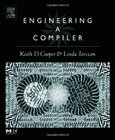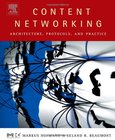Morgan Kaufmann eBooks Page 4
Download free Morgan Kaufmann eBooks Page 4
Engineering a Compiler
The proliferation of processors, environments, and constraints on systems has cast compiler technology into a wider variety of settings, changing the compiler and compiler writer's role. No longer is execution speed the sole criterion for judging compiled code. Today, code might be judged on how small it is, how much power it consumes, how well it compresses, or how many page faults it generates. In this evolving environment, the task of building a successful compiler relies upon the compiler writer's ability to balance and blend algorithms, engineering insights, and careful planning. Today's compiler writer must choose a path through a design space that is filled with diverse alternatives, each with distinct costs, advantages, and complexities. Engi...
Relevance Ranking for Vertical Search Engines
In plain, uncomplicated language, and using detailed examples to explain the key concepts, models, and algorithms in vertical search ranking, Relevance Rankingfor Vertical Search Engines teaches readers how to manipulate ranking algorithms to achieve better results in real-world applications. This reference book for professionalscovers concepts and theories from the fundamental to the advanced, such as relevance, query intention, location-based relevance ranking, and cross-property ranking. It covers the most recent developments in vertical search ranking applications, such as freshness-based relevance theory for new search applications, location-based relevance theory for local search applications, and cross-property ranking theory for applications...
Content Networking
Architecture, Protocols, and Practice
As the Internet has grown, so have the challenges associated with delivering static, streaming, and dynamic content to end-users. This book is unique in that it addresses the topic of content networking exclusively and comprehensively, tracing the evolution from traditional web caching to today's open and vastly more flexible architecture. With this evolutionary approach, the authors emphasize the field's most persistent concepts, principles, and mechanisms--the core information that will help you understand why and how content delivery works today, and apply that knowledge in the future. + Focuses on the principles that will give you a deep and timely understanding of content networking.+ Offers dozens of protocol-specific examples showing how real-...
Conformal Prediction for Reliable Machine Learning
Theory, Adaptations and Applications
The conformal predictions framework is a recent development in machine learning that can associate a reliable measure of confidence with a prediction in any real-world pattern recognition application, including risk-sensitive applications such as medical diagnosis, face recognition, and financial risk prediction. Conformal Predictions for Reliable Machine Learning: Theory, Adaptations and Applications captures the basic theory of the framework, demonstrates how to apply it to real-world problems, and presents several adaptations, including active learning, change detection, and anomaly detection. As practitioners and researchers around the world apply and adapt the framework, this edited volume brings together these bodies of work, providing a spring...
Eye Tracking
In User Experience Design
Eye Tracking for User Experience Design explores the many applications of eye tracking to better understand how users view and interact with technology. Ten leading experts in eye tracking discuss how they have taken advantage of this new technology to understand, design, and evaluate user experience. Real-world stories are included from these experts who have used eye tracking during the design and development of products ranging from information websites to immersive games. They also explore recent advances in the technologywhich tracks how users interact with mobile devices, large-screen displays and video game consoles. Methods for combining eye tracking with other research techniques for a more holistic understanding of the user experience are d...
2007 - 2017 © eBooks-IT.org




